Thinking Critically About Practice Transcript
Speaker 1: Today is about inquiry. Today is about asking really good questions and being investigators.
I am here in Tularey County today to do some really interesting professional learning and invite teachers to be part of the process by observing classrooms, debriefing, and really working towards offering a different kind of a professional learning experience for everyone.
Okay, who has an idea?
The learning experience today really had three components: pre-lesson, lesson, debrief, in 11th grade Advanced Placement Literature class.
What do you think about that?
Then we move to a Fourth Grade classroom, did the pre-lesson, lesson, debrief there as well.
One of my learning goals for you today is to become even more deliberate observers, more astute observers practice. We started with the pre-lesson where I met with each group of teachers would be observing in the classroom. We really want to have everyone hone in on a problem of practice.
As you are observing the lesson, what part of instruction do you want to investigate today?
Speaker 2: What moves or instructional practices invite, engage, and sustain students?
Speaker 1: Next I really wanted to make sure that as they observed they were looking for moments of student learning. I also presented the lesson plan. Knowing what I planned is really helpful in being able to compare it to what really happened.
We're ready to go.
"Hi, give me a five on your way in."
Second component is the actual teaching.
"I think we should hang on to all of these really good ideas. I want you to see if you see any other kinds of patterns."
We are here to kind of make sense of what worked what didn't work. At the end there is a debrief.
Speaker 2: They were still looking for that connection.
Speaker 1: It's an opportunity for us to focus in on how the instructional moves led to the learning which occurred.
"The goal for today is not just to do some teaching, but really the goal is this meta-experience."
I really didn't want this observational experience to be about me, I really wanted it to be something where the learners could use me in order to ask their own best questions about their own practices.
"Here are three questions that I ask myself when I'm thinking about problems with practice. Is there something you wish students did better or differently in your class? Is there something you wish you did better or differently in your teaching? Is there something you would like to change in your teaching practice?"
It's really important for teachers as observers in the classroom to have a reason to observe. If we don't do that I think were a lot more likely to look for surface components of the lesson, rather than really looking at student learning.
"Find somebody close to you and just share what you first generated."
Speaker 2: I'm interested in seeing how students see the relevancy and what they're learning
Speaker 3: I want to know if what I'm having them practice is actually helping them transfer between and across the disciplines.
Speaker 1: The next thing we want to do is take this wish that you have. We want to turn it into the thing you'd like to investigate today.
Speaker 4: Mine was how can we elicit more detail to writing from our students? And how can we get our students to express thoughts clearly in their writing?
Speaker 5: I'd like to find an opportunity to have students more chances to answer questions themselves and not let me do all the answering.
Speaker 1: I just kind of want you to transfer some of the things you just said into some questions. What are some specifics you were going to need observed for? I'm going to go ahead and show the lesson plans with you and that might help give you some things to look for. The goal, what I'll talk to the kids about at the beginning is that we want to understand the difference between details and concepts today. The question is also very similar to that how do we seek connections between the things that we see the ideas that we can't touch. When we talk about what we've read, we need to be able to talk about both of them.
As you know the reading part of "Darkness", so today we're going to work with determining themes and central ideas. We also did a little work in getting ready to be precise and careful observers. It took some time to look at the difference between honing in on student learning and the teacher moves that create that versus more traditional approaches.
I do want you to look for moments of student learning and a way that you might be able to track that is figuring out what you hear students saying so that I can be important. Things you hear me saying. Then what you see. The observation mechanism is pretty simple but it's designed to be simple so that you are able to pursue your question.
With that I'm going to ask you to go back to the problem of practice, in the very last box down here, are the specifics you'll be observing for. Given your problem of practice, the question you have in mind, given what you know about the lesson right now, are there going to be certain things that you're going to want to really gather evidence of. If you're not quite sure if your question is going to mesh, feel free to kind of revise that as well.
"Are we good? Are we ready to go? Everybody's got their problem of practice. Everybody's got their question, so we're going to pay attention to what? Student learning. And the evidence. We're ready to go."
"Nice to meet you, hello."
Second component is teaching, so I've got these classes of students and were digging in.
"I want you to see if you can find the four most powerful examples of evil. Got it? Do you think you can do it?"
When I started to think about this in terms of collecting evidence in terms of student learning then I think it made a lot more sense for the observers to be able to move around the classroom and to collect the kind of evidence that would help us have a really crucial conversations.
"There are these words and some of them are written in red marker and some of them are written in green marker. That's kind of interesting."
The actual teachers of those students were also in the classroom which makes it even more interesting because those teachers understand the students in really interesting ways so then they can bring that knowledge to bear on the conversations we have.
"Thank you, bye thanks a lot, bye."
Once I finished the lesson, we needed to come back together as a group of adult learners.
"First of all, We'll just maybe talk about maybe some reactions and then we want to get into those problems of practice."
We were able to look at some of the feedback that students gave.
Speaker 5: Will you look at the one that says to take details from the text and then get into a concepts?
Speaker 1: Also we were able to look at some pieces of student work, all of these things are to say that the conversations that we have our then based in evidence.
Speaker 6: They were using vocabulary concepts readily.
Speaker 1: We aren't kind of filtering them through generalizations, instead it's very specific and precise and it's that degree of specificity that helps teachers get better.
"We're going to try to pull together all of this work by thinking about some gradients here of evil. The example can come from a quote, everyone choose one. What about the paint chips didn't work or not work?"
Speaker 7: I think it was very challenging for them two come up with one word To start with that less egregious and the most but I think that is what took them to application.
Students: being alone, by yourself, Being inept, and being an outcast. The neglect.
Speaker 7: I kept hearing again and again the words not only on the board but words from the text using to have a conversation.
Speaker 1: What I appreciate is you left them grapple and they were able to support each other.
Speaker 7: The discussion piece allowed time and space kind of process.
Speaker 1: This is one of the things that I always have to check which I think I've applied to your question. Your problem of practice. I always have to check myself because when I get a little worried that we might not get where we're supposed to go, my reaction is to jump in. I want to jump in and bring them all back to the group, but I know that's not, in the end, I have to talk myself out of it.
This debrief is crucial because it helps us see the difference between what I planned and what happened. That's the invisible work of teaching. That's the stuff that we don't get to see but it is what makes the difference.
"Video games equals frustration. Should be take a look at another one for me make a guess about the difference between red and green."
Speaker 5: As you were going down the red and green, I was having some doubtful moments of whether the students were learning the difference and whatnot until you hit pet.
Speaker 1: How does your pet feel?
Speaker 5: Once you gave that example of pet, all of a sudden you could see their brains kind of turn on and say wow, okay so then they started to contribute happy, joyful, and they really could understand the difference
Speaker 1: What do you think it was about that moment?
Students: They could relate, it was relevant.
Speaker 1: Do you think it would've been different if I would've started with that?
Speaker 2: Because it was more personal to them, I think they would've got that but you made them think harder at the beginning.
Speaker 1: How about your problems of practice. Let's go ahead and spend a little time just thinking about what you want to take away from this. A little talk time.
[Crosstalk]
Speaker 2: If we want them to be clear, maybe they need to have any sentences detail with an idea to expand what they're trying to balance.
Speaker 3: Like, mine was what moves and practices engage students in higher levels. You totally answered it. The fact that the questions were so deliberately placed and then her questioning allowed them to apply it in the moment. We're looking to see if the relevancy will help them push deeper thinking and it did.
Speaker 1: We're looking to see if the relevancy will help them push deeper thinking and it did.
Speaker 3: They were ready to keep going. She would have to kind of hold them back to make sure they had a good foundation.
Speaker 2: Sometimes kids don't have the language to express the higher order thinking, so I felt like a lot of this is created to give them the language that they needed.
Speaker 1: Do you see how it pushes you little bit further? okay.
This observation experience is something that evolves. If we brought in other voices I think that there are lots of layers to uncover, but I think in terms of doing this for the first time we did good job.
Speaker 2: Normally when we go through our rounds, the school, the site has already identified the problem of practice. Here we got to look at what we were individually looking for as a problem of practice.
Speaker 3: The fact that we were asked to look for evidence of learning really allowed us to have some rich conversations and through this problem of practice.
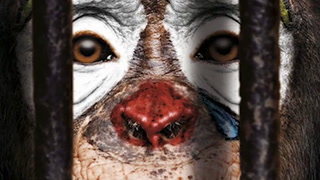
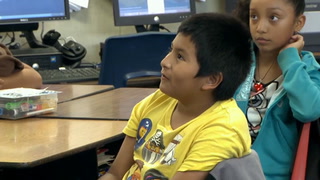
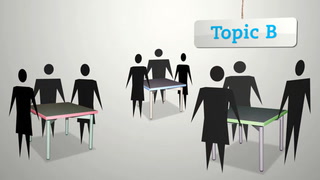
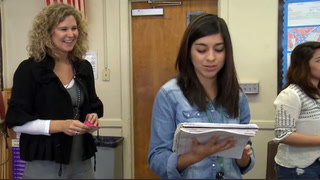
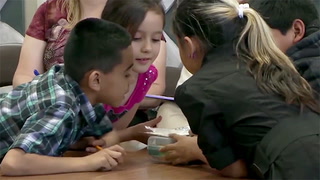
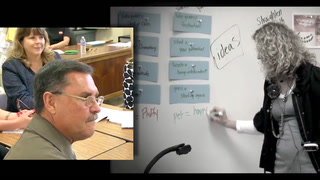
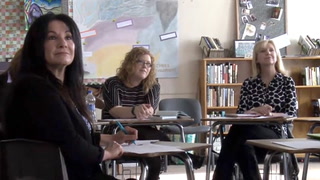









20 Comments
Marcel Bonnette Feb 9, 2018 12:41pm
Sherri Devine Apr 20, 2017 1:43pm
Dee Jordan Apr 20, 2017 1:30pm
Alison Escobar Nov 21, 2016 11:44pm
Tariq Khan Sep 22, 2016 6:51pm